News
EELA at Africa Climate Summit 2: The Industry Clean-Tech Platform Driving Scaled-Up Energy Efficiency in Africa
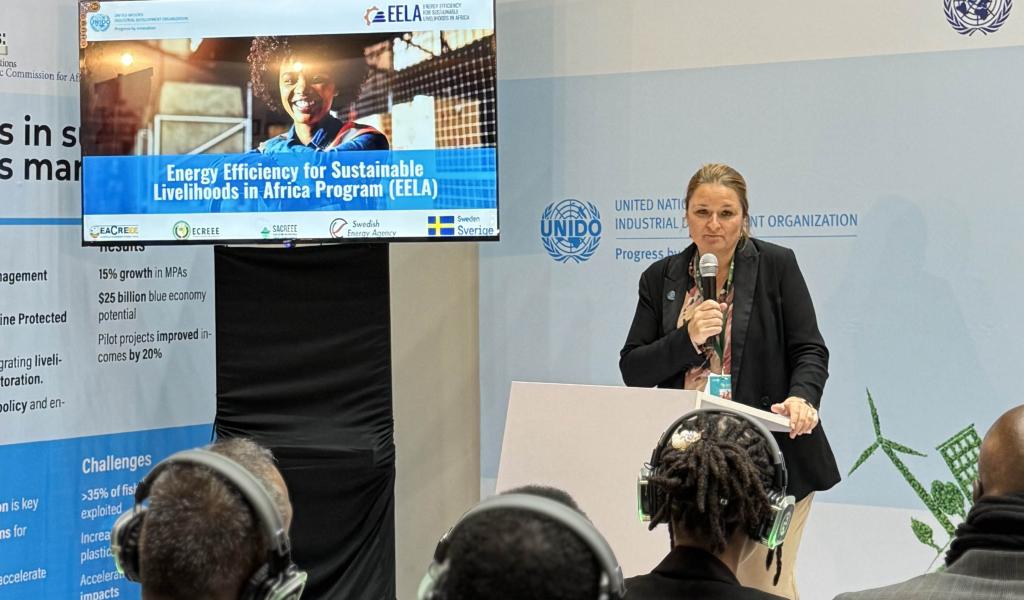
Addis Ababa, 10 September 2025 – At the 2nd Africa Climate Summit (ACS2), partners and stakeholders came together for a special UNIDO event to spotlight how energy efficiency can transform Africa’s industrial future. The session, titled “Scaling Energy Efficiency for Sustainable Livelihoods in Africa: Accelerating Investments through the EELA Industry Clean-Tech Platform”, was organised in close collaboration with the UNIDO field office in Addis Ababa. Hosted at the UNECA Pavilion of the Addis International Convention Centre, it gathered policymakers, development partners, regional organizations, and private sector actors for a dynamic exchange on accelerating clean-tech investments across the continent.
Discussion centered on the Energy Efficiency for Sustainable Livelihoods in Africa (EELA) Program and its flagship initiative, the Industry Clean-Tech Platform (ICTP), a comprehensive gateway for energy efficiency innovation designed as a catalyst for advancing green industrialization and investments across the continent.
A CALL TO ACTION FOR AFRICA’S INDUSTRIAL FUTURE
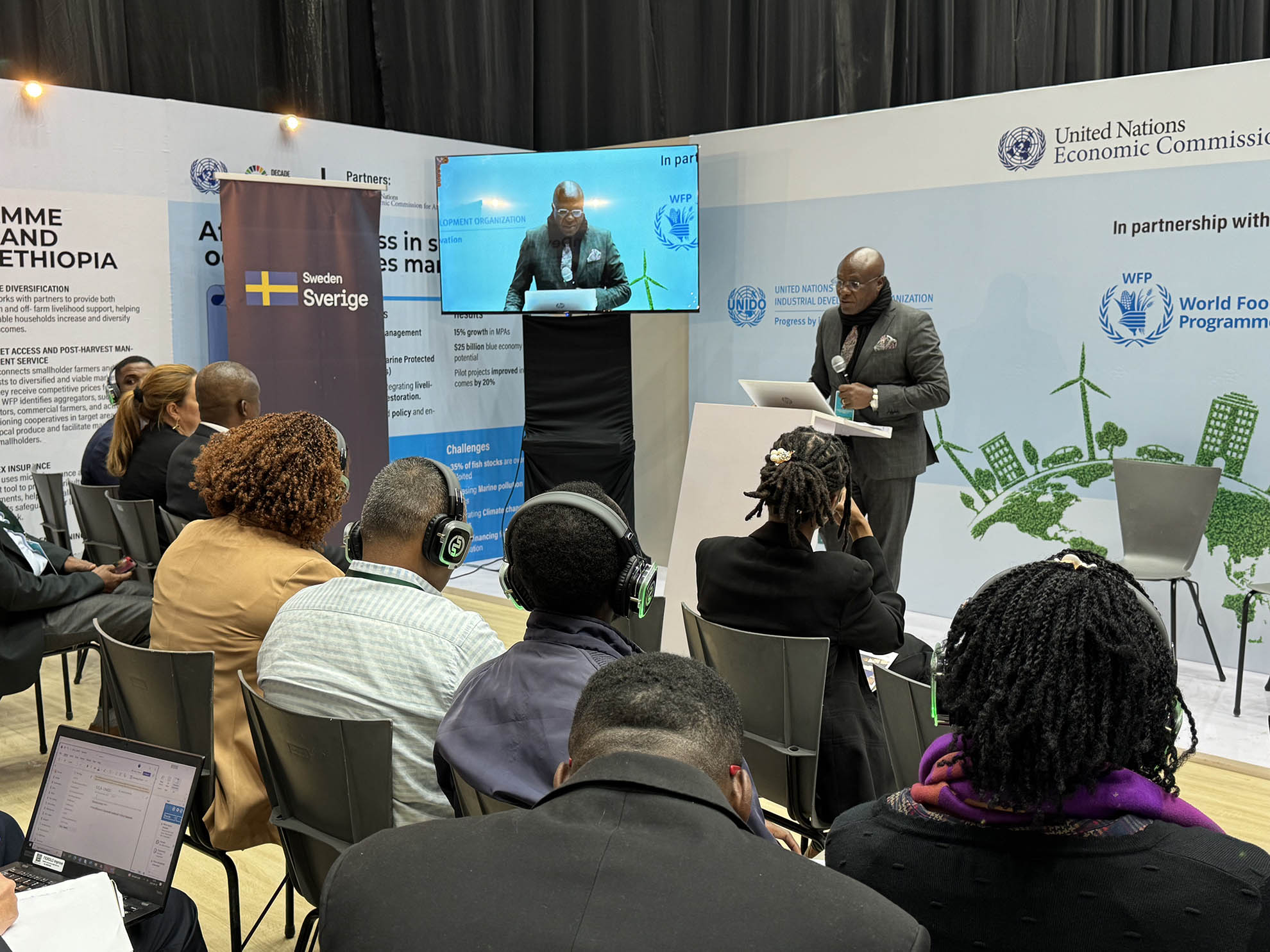
Mr. Goddy Muhanguzi Muhumuza, Executive Director of EACREEE, delivering his opening remarks.
Opening the discussion, Mr. Goddy Muhanguzi Muhumuza, Executive Director of EACREEE, reminded participants that Africa’s industries are growing rapidly and hold enormous potential for prosperity. Yet, he warned, this growth also brings challenges: rising energy demand, higher emissions, and reliance on outdated technologies. “If left unaddressed, these challenges could slow down our path towards Agenda 2063, compromise our Nationally Determined Contributions, and limit Africa’s competitiveness in a rapidly changing global economy,” he said.
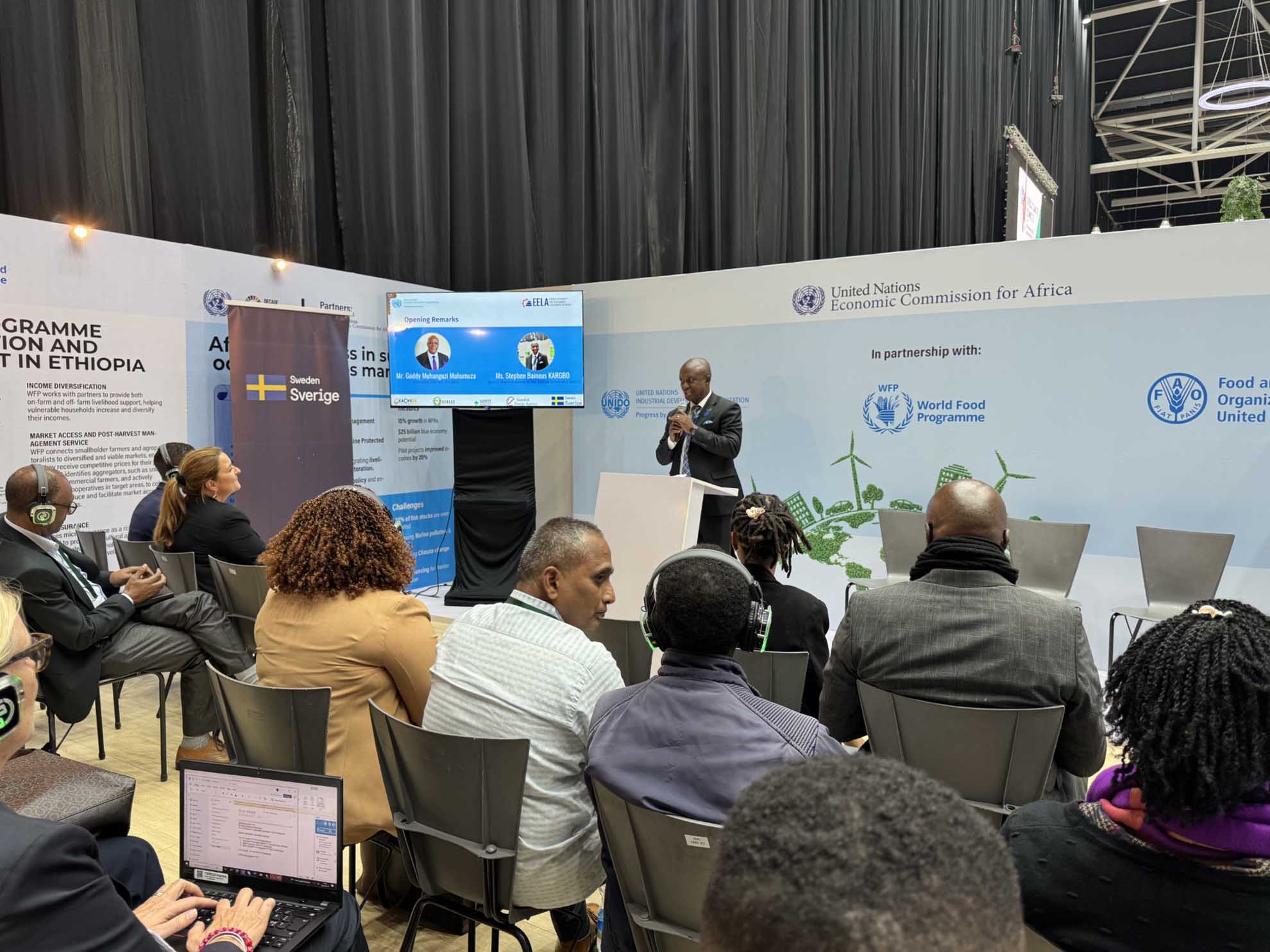
Mr. Stephen Kargbo, UNIDO Representative in Ethiopia, addressing participants during his opening remarks
Mr. Stephen Kargbo, UNIDO Representative in Ethiopia, emphasised the urgent need for coordinated action and investment in clean technologies to help industries overcome these challenges and align with global sustainability goals. “As industries expand, they face real challenges. Outdated technologies, inefficient production processes, limited access to competitiveness, and increased costs all contribute to rising emissions, even as the world, including Africa, moves toward sustainability“, he stated. Building on this point, Mr. Kargbo highlighted the central role of the private sector in driving the transition. “To achieve Africa’s industrial ambitions, we must create an enabling ecosystem that gives companies the confidence to invest in cleaner and more efficient technologies. The ICTP is designed to do just that — by de-risking investments, strengthening value chains, and demonstrating the profitability of sustainability,” he added.
EELA Program Manager at UNIDO Ms. Karin Reiss-Haimbala built on this message by stressing that energy efficiency is not a luxury but a necessity. She described the ICTP as “a bridge that connects industries to cutting-edge solutions, facilitates technology transfer, and unlocks financing for climate-smart investments.” She also highlighted that the private sector has a central role to play, noting that “to achieve Africa’s industrial ambitions, we must create an enabling ecosystem that gives companies the confidence to invest in cleaner and more efficient technologies”.
SHOWCASING THE INDUSTRY CLEAN-TECH PLATFORM
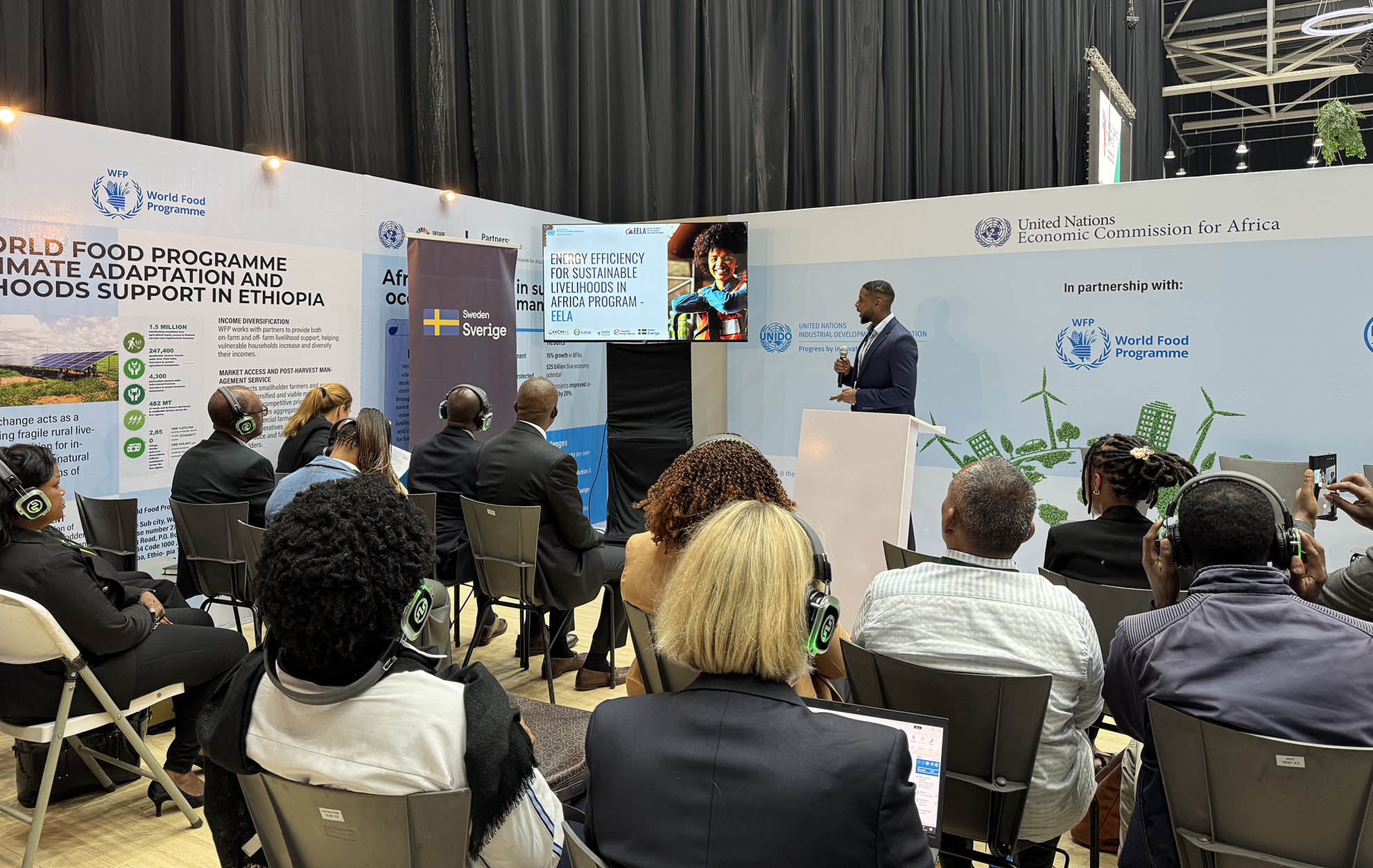
Mr. Alaeldin Mohamed introduces the ICTP Platform at the Africa Climate Summit - Addis Ababa, 10 September 2025 – ph. EELA Program
The ICTP, which is already being piloted in Kenya, Zambia, and Zimbabwe, was presented as an innovative “one-stop shop” for industries across Africa. Mr. Alaeldin Sayed Ali Mohamed, Associate Industrial Development Expert at UNIDO, explained how the platform supports industries by creating demand for low-carbon solutions, demonstrating new technologies, and mobilizing financing by reducing investment risks. He emphasized that these efforts are not only reducing greenhouse gas emissions but also strengthening industrial competitiveness and resilience.
PERSPECTIVES FROM FINANCE, POLICY, AND INDUSTRY
The event featured a lively panel discussion that brought together voices from government, finance, and regional representatives. Ms. Vera Obare of the Embassy of Sweden underscored the importance of public-private partnerships and stressed the need for financing models that can unlock private investment in clean technologies.
From the West African perspective, Ms. Monica Maduekwe of ECREEE highlighted how access to finance will be a decisive factor in scaling up energy efficiency and clean technology. She also pointed to the opportunities the ICTP could create for businesses and communities across the ECOWAS region.
Furthermore, it was emphasized that the ICTP’s potential to stimulate local innovation, strengthen skills development, and create jobs. Replicating the platform’s successes across different industries and countries could ensure widespread impact.
BUILDING MOMENTUM BEYOND PILOTS
Closing the session, Mr. Dawit Alemu, Senior Technical Advisor at Ethiopia’s Ministry of Industry, reflected on the progress made and the opportunities ahead. He stressed that while the ICTP has been piloted in three countries, its real value lies in its potential as a continental blueprint and its upscaling potential. “We have seen how the EELA Programme is already demonstrating that energy efficiency is more than an environmental necessity, it is a driver of jobs, competitiveness, and lower costs for industries,” he said. “The tools are here, the models are working, and the partnerships are ready. What remains is for governments, businesses, and partners to act boldly and scale up for a green industrial future”.
LOOKING AHEAD
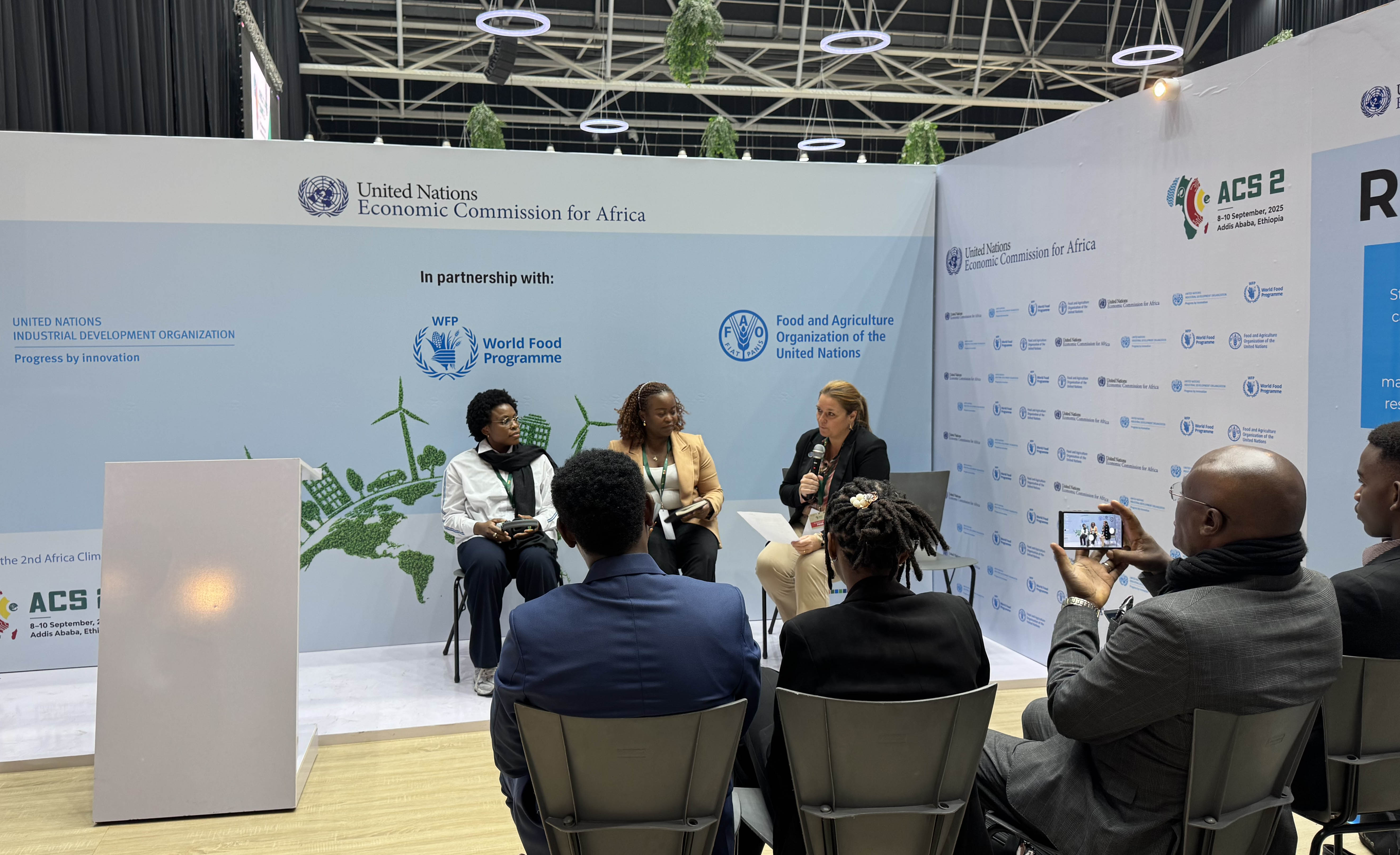
The discussions at ACS2 made clear that energy efficiency and low-carbon solutions are central to Africa’s vision of resilient, inclusive, and sustainable growth. By stimulating demand for clean technologies, supporting technology transfer and capacity-building, and mobilizing new financing, the EELA Industry Clean-Tech Platform is helping to position Africa’s industries at the forefront of green transformation.
Participants agreed that the ICTP aligns strongly with Agenda 2063, NDC implementation, and the outcomes of the Africa Climate Summit. As support from governments, financiers, and development partners continues to grow, the platform is exploring pathways for future growth across the continent.
POSITIONING EELA COUNTRY WINDOWS AT THE CORE OF THE ICTP
The existing EELA Country Window Projects are laying a solid foundation for the advancement of the ICTP, built on close collaboration with local partners and private sector stakeholders. Following the successful inauguration of the Kenya Country Window in May 2025, the initiatives were subsequently launched in Zimbabwe and Zambia, attracting strong engagement from leading national institutions and significant media visibility. Aligned with the EELA approach, each Country Window is tailored to the specific priorities and contexts of the respective country, while collectively driving the uptake of energy-efficient technologies, fostering investment in low-carbon industrial transformation, and accelerating the region’s transition toward sustainable industrial development. As Africa charts its industrial future, the EELA’s ICTP is helping ensure that industrial growth goes hand in hand with clean technologies, inclusive partnerships, and climate-smart development pathways.
Opening image: Ms. Karin Reiss-Haimbala, EELA Program Manager, at the 2nd Africa Climate Summit (ACS2) during the opening of the “Scaling Energy Efficiency for Sustainable Livelihoods in Africa: Accelerating Investments through the EELA Industry Clean-Tech Platform” session.